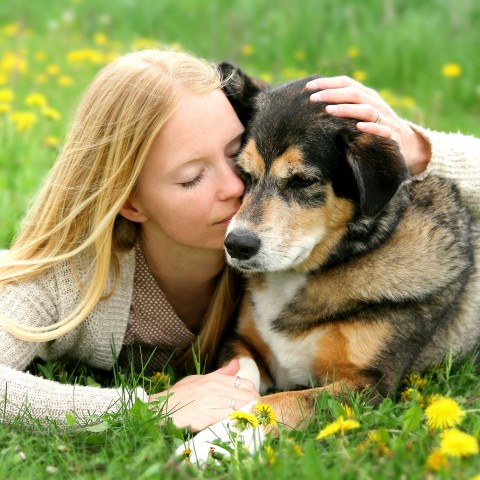
you’re learning to speak Hebrew, and it’s going well. Your confidence is growing! So much so that you feel ready to share your experiences on social media—in Hebrew.
At Learn Hebrew, we make this easy for you to get it right the first time. Post like a boss with these phrases and guidelines, and get to practice your Hebrew in the process.

1. Talking about Your Restaurant Visit in Hebrew
Eating out is fun, and often an experience you’d like to share. Take a pic, and start a conversation on social media in Hebrew. Your friend will be amazed by your language skills…and perhaps your taste in restaurants!
Eyal eats at a restaurant with his friends, posts an image of the group, and leaves this comment:

POST
Let’s break down Eyal’s post.
בארוחת ערב עם האחים! (Be-arukhat erev im ha-akhim!)
“At dinner with the bros!”
1- האחים (ha-akhim)
First is an expression meaning “the bros.”
In Israel there is an emphasis on familiarity and closeness. Men who are very close to each other will often refer to one another as “brother”. Sometimes people call total strangers “my brother”.
2- בארוחת ערב עם האחים! (be-arukhat erev im ha-akhim!)
Then comes the phrase – “at dinner with the bros!”
Israeli men love hanging out only with their guy friends every once in a while. It could be going out to dinner, going to the beach, or having a beer. Male bonding can be a very strong time, especially since many times these men know each other from the army. Being in the army is a very influential period as men have to do everything together, from waking up to going to sleep.
COMMENTS
In response, Eyal’s friends leave some comments.
1- משווים למי נשאר יותר שיער על הראש! (Mashvim lemi nish-ar yoter se’ar al ha-rosh!)
His college friend, Noam, uses an expression meaning – “Comparing who has more hair left on his head!”
Use this expression to show you are feeling frivolous and want to contribute to the conversation.
2- נראה בסדר בסך-הכל… (Nir’eh beseder besakkh – hakol…)
His girlfriend’s nephew, Alon, uses an expression meaning – “Looks ok, all in all…”
Use this expression to show you are feeling cynical.
3- ענת מרשה לך לצאת בלעדיה?! (Anat marsha lekha latzet bil’adeyha?!)
His girlfriend’s high school friend, Michal, uses an expression meaning – “Anat lets you go out without her?!”
Use this expression if you wish to tease the poster.
4- זה בסדר, מגיע לו להנות! (Ze beseder, magi-a lo lehenot!)
His girlfriend, Anat, uses an expression meaning – “It’s alright, he deserves to have fun!”
Use this expression in response to the previous post to indicate that you don’t mind your boyfriend hanging out with this male friends.
VOCABULARY
Find below the key vocabulary for this lesson:
ארוחת ערב (arukhat erev): “dinner”
אחים (ha-akhim): “bros, brothers”
בסדר (beseder): “ok, all right”
בסך-הכל (besakh-hakol): “all in all”
הרשה (hirsha): “to let, to allow”
יצא (yatza): “to go out”
הגיע לו (higi-a lo): “to deserve”
להנות (lehenot): “have fun”
So, let’s practice a bit. If a friend posted something about having dinner with friends, which phrase would you use?
Now go visit a Hebrew restaurant, and wow the staff with your language skills!
2. Post about Your Mall Visit in Hebrew
Another super topic for social media is shopping—everybody does it, most everybody loves it, and your friends on social media are probably curious about your shopping sprees! Share these Hebrew phrases in posts when you visit a mall.
Anat shop with her sister at the mall, posts an image of the two of them, and leaves this comment:

POST
Let’s break down Anat’s post.
קצת ריפוי בשופינג עם אחותי המהממת. (K’tsat ripuy be-shoping im akhoti ha-mehamemet.)
“A bit of shopping therapy with my stunning sister.”
1- ריפוי בשופינג (ripuy be-shopping)
First is an expression meaning “shopping therapy.”
Most times you can just say “I’m going shopping” or “doing some shopping”. But when you call it “shopping therapy”, you emphasize the fun and relaxing aspects of it. Especially when it’s done with someone dear to you, like your sister.
2- מהממת (mehamemet)
Then comes the phrase – “stunning.”
This word is often used by girls to describe their best friend, sister or mom. it’s used not only to show how loved they are, but also to show appreciation for their beauty – inside and out.
COMMENTS
In response, Anat’s friends leave some comments.
1- וואו, איך בא לי לצאת לשופינג, מקנאה! (Wow, eikh be li latset le-shopping, mekana!)
Her high school friend, Michal, uses an expression meaning – “Wow, how I feel like shopping. Jealous!”
With this phrase, you indicate that you wish you could also shop, and feel envious of the poster.
2- אין בעולם דבר יותר טוב מאחיות! (Ein ba-olam davar yoter tov me-akhayot!)
Her boyfriend’s high school friend, Tamar, uses an expression meaning – “Nothing better than sisters in the world!”
Use this expression to show your appreciation of female siblings.
3- תראי לי מה קנית כשתחזרי הביתה… (Tar’ii li ma kanit keshe-takhzeri ha’bayta…)
Her neighbor, Orly, uses an expression meaning – “Show me what you bought when you get home…”
Use this expression when you are curious about the poster’s shopping.
4- תהנו! (Tehenu!)
Her boyfriend, Eyal, uses an expression meaning – “Have fun!”
Use this expression to wish the poster a good time.
VOCABULARY
Find below the key vocabulary for this lesson:
מהממת (mehamemet): “stunning”
ריפוי (ripuy): “therapy”
לקנא (lekane): “to be jealous”
אין כמו… בעולם (ein kmo… ba-olam): “nothing like”
הביתה (ha’baita): “(to) home”
תהנו! (tehenu!): “Enjoy! Have fun!”
לחזור (lakhzor): “to come back, to return”
So, if a friend posted something about going shopping, which phrase would you use?
3. Talking about a Sport Day in Hebrew
Sports events, whether you’re the spectator or the sports person, offer fantastic opportunity for great social media posts. Learn some handy phrases and vocabulary to start a sport-on-the-beach conversation in Hebrew.
Eyal plays with his friends at the beach, posts an image of the team, and leaves this comment:

POST
Let’s break down Eyal’s post.
נעם חושב שהוא יכול לנצח אותי במטקות. הוא טועה! (Noam khoshev she-hu yakhol lenatse’akh oti bematkot. Hu to’eh!)
“Noam thinks he can beat me in paddle-ball. He’s wrong!”
1- מטקות (matkot)
First is an expression meaning “paddle-ball”.
Although the origin of the name “matkot” is unknown, it’s the most popular beach game in Israel. Even though it’s a casual game and not very physically demanding, some people take it seriously and even buy specialty paddles to play with.
2- טעות! (taut!)
Then comes the phrase – “wrong!.”
Literally, this word means “mistake”. But its use is the same as the English word “wrong”.
COMMENTS
In response, Eyal’s friends leave some comments.
1- אחרי ההפסד שלך בפעם הקודמת, לא הייתי משוויץ. (Akharei ha-hefsed shelkha bafa-am ha-kodemet, lo ha’iti mashvits!)
His girlfriend’s nephew, Alon, uses an expression meaning – “After your loss last time, I wouldn’t brag.”
Use this expression to tease the poster with a bit of sarcasm.
2- אלון, לא ציינת שהוא הפסיד לי. פעמיים. (Alon, lo tsiyanta she-hu hifsid li, pa’amayim!)
His girlfriend’s high school friend, Michal, uses an expression meaning – “Alon, you didn’t mention he lost to me. Twice.”
Use this expression to participate in the conversation started by the previous poster. Again, it is meant in a playful, teasing way.
3- קדימה אייל! (Kadima Eyal!)
His supervisor, Yigal, uses an expression meaning – “Go, Eyal!”
Use this expression to wish the poster a successful game.
4- לא הוגן! הסתנוורתי מהשמש! (Lo hogen! histanvarti me-ha-shemesh!)
His college friend, Noam, uses an expression meaning – “Not fair! I was blinded by the sun!”
This is a further elaboration on a topic started by other posters in the thread. It is also playful and teasing.
VOCABULARY
Find below the key vocabulary for this lesson:
לנצח (lenatze’akh): “to win”
לחשוב (lakhshov): “to think”
הפסד (hefsed): “loss (in a game)”
להשוויץ (lehashvits): “to brag”
להפסיד (lehafsid): “lose”
פעמיים (pa’amayim): “twice”
קדימה! (kadima!): “go! (lit; forward)”
להסתנוור (lehistanver): “to be blinded”
Which phrase would you use if a friend posted something about sports?
But sport is not the only thing you can play! Play some music, and share it on social media.
4. Share a Song on Social Media in Hebrew
Music is the language of the soul, they say. So, don’t hold back—share what touches your soul with your friends!
Anat shares a song she just heard at a party, posts an image of the artist, and leaves this comment:

POST
Let’s break down Anat’s post.
איזה שיר מעולה! (Eize shir me’ule!)
“What a great song!”
1- איזה (eize)
First is an expression meaning “what a….”
This expression expresses wonder and admiration and is similar to saying “what a…” in English. In Hebrew it is also a question; however, the meaning of it isn’t “what” but “which”. It can also be used in the feminine -” איזו/eizo”.
2- מעולה (me’ule)
Then comes the phrase – “great, top notch.”
This word describes something of good quality. It also is used for things we personally enjoy. In addition, you can use it casually, for instance, when deciding on something with a friend, as it means the same as “okay, great”. You can use this word to describe something in the feminine as well: “מעול0ה/me’ula”.
COMMENTS
In response, Anat’s friends leave some comments.
1- זה השיר מהמסיבה אתמול, נכון? (Ze ha-shir me-ha-mesiba etmol, nakhon?)
Her boyfriend’s high school friend, Tamar, uses an expression meaning – “It’s the song from the party yesterday, right?”
Use this expression when you and the poster have a history with the song.
2- כל האלבום מעולה. (Kol ha-albom me’ule.)
Her neighbor, Orly, uses an expression meaning – “The whole album is really good.”
Use this expression to share a personal opinion about the music.
3- תמר, די כבר להשמיע את זה בלופ! (Tamar, day kvar lehashmi’a et ze be-loop!)
Her boyfriend, Eyal, uses an expression meaning – “Tamar, stop playing it on a loop!”
Use this expression to tease the poster in a playful way.
4- זה מה שהצעירים שומעים היום? (Ze ma she-ha-tse’eerim shom’im hayom?)
Her supervisor, Yigal, uses an expression meaning – “Is that what youngsters listen to nowadays?”
Presumably, you’re a bit older than the poster when you use this phrase. It’s a question that can be rhetorical but also a good conversation-starter.
VOCABULARY
Find below the key vocabulary for this lesson:
שיר (shir): “song”
מסיבה (mesiba): “party”
נכון? (nakhon?): “right?”
ממש (mamash): “really”
להשמיע (lehashmi’a): “to play (lit: to make heard)”
לופים (loopim): “repeatedly (lit: loops)”
צעירים (tse-irim): “youngsters, young people”
Which song would you share? And what would you say to a friend who posted something about sharing music or videos?
Now you know how to start a conversation about a song or a video on social media!
5. Hebrew Social Media Comments about a Concert
Still on the theme of music—visiting live concerts and shows just have to be shared with your friends. Here are some handy phrases and vocab to wow your followers with in Hebrew!
Eyal goes to a concert, posts an image of it, and leaves this comment:

POST
Let’s break down Eyal’s post.
איזו הופעה מטורפת! (Eyzo hofa’ah metorefet!)
“What a crazy concert!”
1- הופעה (hofa’ah)
First is an expression meaning “concert.”
In Hebrew, the term for concert, הופעה, (hofa’ah), is more general and is the equivalent of the English word “show”. This term is also used for other types of shows that are not necessarily musical. When saying the word “concert” in Hebrew, קונצרט (kontzert), it refers only to a classical music concert.
2- מטורף (metorefet)
Then comes the phrase – “crazy, insane.”
When describing a show, an event, a party, etc., this word, which usually has a negative association, takes a positive meaning to describe a strong, electrifying atmosphere or an impressive setting.
COMMENTS
In response, Eyal’s friends leave some comments.
1- אתה בשורה הראשונה?! (Ata ba-shura ha-rishona?)
His college friend, Noam, uses an expression meaning – “Are you in the first row?!”
Ask this to show your interest in the topic, and for more information from the poster.
2- מדהים! (Madhim!)
His neighbor, Orly, uses an expression meaning – “Amazing!”
Use this comment when you feel very positive about, and in agreement with the post.
3- אני לא מאמין שאני מפספס את זה. (Ani lo ma’amin she-ani mefasfes et ze.)
His girlfriend’s nephew, Alon, uses an expression meaning – “I can’t believe I’m missing this.”
Use this expression when you are feeling a bit disheartened.
4- אה…. סליחה, אבל, מי אלה? (Eh… slikha, aval, mi ele?)
His girlfriend’s high school friend, Michal, uses an expression meaning – “Eh… excuse me but who are they?”
Use this expression to tease the poster, and/or to find out the identity of the artist.
VOCABULARY
Find below the key vocabulary for this lesson:
שורה (shura): “row, line”
ראשון (rishon): “first”
מדהים (madhim): “amazing”
להאמין (leha’amin): “to believe”
לפספס (lefasfes): “to miss”
סליחה (slikha): “sorry, excuse me”
אבל (aval): “but”
If a friend posted something about a concert , which phrase would you use?
6. Talking about an Unfortunate Accident in Hebrew
Oh dear. You broke something by accident. Use these Hebrew phrases to start a thread on social media. Or maybe just to let your friends know why you are not contacting them!
Anat accidentally breaks her mobile phone, and leaves this comment:

POST
Let’s break down Anat’s post.
שברתי את הנייד שלי. סליחה שאני לא זמינה בינתיים. (Shavarti et ha-nayad sheli. Slikha she-ani lo zmina beynatayim.)
“I broke my cell phone. Sorry, I’m not available for now.”
1- נייד (nayad)
First is an expression meaning “mobile, mobile phone.”
The word נייד (nayad) literally means “mobile”, and is short for “mobile phone”
2- זמין (zamin)
Then comes the phrase – “available.”
This word literally means what it says. It can refer to an available person or available resources.
COMMENTS
In response, Anat’s friends leave some comments.
1- שוב??? (Shuv???)
Her nephew, Alon, uses an expression meaning – “Again???”
Use this expression if you’re feeling exasperated with the poster. This comment is probably best saved when you know the poster well and have a good, close relationship with them.
2- אני יכולה להמליץ לך על מעבדת תיקונים. (Ani yekhola lehamlitz lakh al ma’abadat tikunim.)
Her high school friend, Michal, uses an expression meaning – “I can recommend you a cellular lab.”
Use this comment if you wish to be helpful.
3- אני אתן לך את הנייד הישן שלי בינתיים. (Ani eten lakh et ha-nayad ha-yashan sheli beynatayim.)
Her boyfriend, Eyal, uses an expression meaning – “I’ll give you my old cell for now.”
This is another comment that shows caring and a helpful attitude.
4- הטלפונים של פעם לא היו נשברים. (Ha-telefonim shel pa’am lo hayu nishbarim.)
Her supervisor, Yigal, uses an expression meaning – “The old phones never used to break.”
This is a general comment so as to be part of the conversation, and give an appropriate, personal opinion.
VOCABULARY
Find below the key vocabulary for this lesson:
בינתיים (beynatayim): “meanwhile, for now”
עוד פעם (od pa’am): “once more, again”
מעבדה (ma-abada): “lab, laboratory”
תיקון (tikun): “fix”
להמליץ (lehamlitz): “to recommend”
לתת (latet): “to give”
להשבר (lehishaver): “to break”
If a friend posted something about having broken something by accident, which phrase would you use?
So, now you know how to describe an accident in Hebrew. Well done!
7. Chat about Your Boredom on Social Media in Hebrew
Sometimes, we’re just bored with how life goes. And to alleviate the boredom, we write about it on social media. Add some excitement to your posts by addressing your friends and followers in Hebrew!
Eyal gets bored at home, and leaves this comment:

POST
Let’s break down Eyal’s post.
משעמם לי, מי רוצה לעשות משהו? (Masha’amem li, mi rotze la’asot mashehu?)
“I’m bored. Who wants to do something?”
1- משעמם לי (mesha’amem li)
First is an expression meaning “I’m bored.”
This is a more juvenile way of expressing boredom, loosely translated to “boring to me”. This structure is used as a way of emphasizing your passiveness in the matter (i.e. it’s not your fault that you are bored) and also that it is a temporary situation. If you use the proper sentence structure: אני משועמם (ani meshuamam), it sounds more like you are bored of life in general, and not just right now.
2- משהו (mashehu)
Then comes the phrase – “something.”
This is actually a compound word made of the words מה שהוא (ma she-hu). This loosely translates to “what that is”, meaning, a thing that exists but is undefined. If you want to say “someone”, you would say, מישהו (mishehu) “who that is”- a person who exists.
COMMENTS
In response, Eyal’s friends leave some comments.
1- רוצה להתחלף? יש לי דו”ח להגיש מחר. (Rotze lehitkhalef? yesh li duakh lehagish makhar.)
His girlfriend’s high school friend, Michal, uses an expression meaning – “Wanna switch? I have a report due tomorrow.”
Use this expression to be playful and light about the poster’s predicament, while also reminding them that things could have been worse for them.
2- תספור את המרצפות בבית שלך. (Tispor et ha-mirtzafot ba-bayit shelkha.)
His college friend, Noam, uses an expression meaning – “Count the tiles in your house.”
Use this expression if you are feeling frivolous and wish to tease the poster.
3- בוא לפה, יש לי משחקי וידאו. (Bo lepo, yesh li miskhakey video.)
His girlfriend’s nephew, Alon, uses an expression meaning – “Come over. I have video games.”
Use this suggestion as an invitation to the poster.
4- אתה יכול לקרוא ספר. (Ata yakhol likro sefer.)
His neighbor, Orly, uses an expression meaning – “You could read a book.”
This is a suggestion aimed to be helpful to the poster.
VOCABULARY
Find below the key vocabulary for this lesson:
לרצות (lirtsot): “to want”
להתחלף (lehitkhalef): “to switch”
דו”ח (duakh): “report”
מרצפות (mוrtzafot): “tiles, slabs”
לספור (lispor): “to count”
משחק וידאו (miskhak video): “video game”
לקרוא (likro): “to read”
ספר (sefer): “book”
If a friend posted something about being bored, which phrase would you use?
Still bored? Share another feeling and see if you can start a conversation!
8. Exhausted? Share It on Social Media in Hebrew
Sitting in public transport after work, feeling like chatting online? Well, converse in Hebrew about how you feel, and let your friends join in!
Anat feels exhausted after a long day at work, posts an image of herself looking tired, and leaves this comment:

POST
Let’s break down Anat’s post.
אני מותשת מהיום הזה! אני צריכה פיצוי דחוף. (Ani muteshet me-ha-yom haze! Ani tzrikha pitzuy dakhuf!)
“I’m exhausted from this day! I need compensation ASAP!”
1- מותש (mutash)
First is an expression meaning “exhausted”.
This adjective means “exhausted”. It’s quite a common word and is used in social media and other contexts. For example, a “war of attrition” is מלחמת התשה (milkhemet, hatasha).
2- דחוף (dakhuf)
Then comes the phrase – “urgent, ASAP.”
This noun used to be found mostly in office or military settings, stamped on envelopes containing urgent materials. Now, however, it found it’s way to social media and expresses not only urgency but cravings as well, like “I need some ice cream ASAP!”.
COMMENTS
In response, Anat’s friends leave some comments.
1- מסכנה שלי. מבטיח לפנק אותך כשתגיעי הביתה. (Miskena sheli. Mavti’akh lefanek otakh ke-she-tagi’i ha’bayta.)
Her boyfriend, Eyal, uses an expression meaning – “My poor thing. I promise I’ll spoil you when you get home.”
Use this expression when you wish to be supportive of and empathetic with your beloved.
2- טוב שזה נגמר. (Tov she-ze nigmar.)
Her neighbor, Orly, uses an expression meaning – “The good thing is that it’s over!”
Use this expression to be supportive by pointing out the positives about the poster’s situation.
3- לכי לישון מוקדם הערב. (Lekhi lishon mukdam ha’erev.)
Her high school friend, Michal, uses an expression meaning – “Go to bed early tonight.”
Another supportive suggestion.
4- מחר יהיה יותר טוב! זה בטוח! (Makhar yihiye yoter tov, ze batu’akh!)
Her boyfriend’s high school friend, Tamar, uses an expression meaning – “Tomorrow will be better! For sure!”
Use this suggestion when you are feeling optimistic.
VOCABULARY
Find below the key vocabulary for this lesson:
להצטרך (lehitstarekh): “to need”
פיצוי (pitzuy): “compensation”
מסכן (misken): “poor, miserable”
לפנק (lefanek): “to treat, to pamper, to spoil”
מוקדם (mukdam): “early”
בטוח (batu’akh): “sure, surely”
להבטיח (lehavti’akh): “to promise”
If a friend posted something about being exhausted, which phrase would you use?
Now you know how to say you’re exhausted in Hebrew! Well done.
9. Talking about an Injury in Hebrew
So life happens, and you manage to hurt yourself during a soccer game. Very Tweet-worthy! Here’s how to do it in Hebrew.
Eyal suffers a painful injury, posts an image of it, and leaves this comment:

POST
Let’s break down Eyal’s post.
נפצעתי במשחק הכדורגל של שבת, אבל בקרוב אחזור לשחק! (Niftzati be-miskhak ha-kaduregel shel shabat, aval bekarov akhazor lesakhek!)
“I was injured in Saturday’s soccer game. But I’ll be back to play soon!”
1- כדורגל (kaduregel)
First is an expression meaning “soccer, football”.
The word for “soccer” or “football” in Hebrew is a compound word made of כדור (kadoor), meaning “ball”, and רגל, meaning “leg” or “foot”. Because the word כדור ends with a “ר”ת, and the word רגל starts with a “ר”, one of them was omitted and the phrase became one whole word.
2- כדורגל של שבת (kaduregel shel shabat)
Then comes the phrase – “Saturday’s soccer”.
Soccer is one of the most popular sports in Israel. It is often played regularly on Saturdays by groups of friends. In addition, most of the Israeli soccer league games take place on Saturday evening. So the phrase “Saturday’s soccer” became quite common.
COMMENTS
In response, Eyal’s friends leave some comments.
1- אתה מתכוון שבקרוב תחזור להפסיד? (Ata mitkaven she-bekarov takhazor lehafsid?)
His college friend, Noam, uses an expression meaning – “You mean, you’ll be losing again in no time?”
Use this expression when you are feeling frivolous and want to tease the poster, trying to lighten up the mood for the poster.
2- יהיה בסדר אחי. קח הרבה משככי כאבים. (Yihiye beseder akhi, kakh harbe meshak’khey ke’evim.)
His girlfriend’s nephew, Alon, uses an expression meaning – “It’ll be alright, bro. Take a lot of painkillers.”
Use this expression when you’re feeling supportive and wish to console the poster.
3- החלמה מהירה! (Hakhlama mehira!)
His supervisor, Yigal, uses an expression meaning – “Get well soon!”
This is the traditional response to news of an injury or illness that’s not too serious.
4- זו אשמתך. זה מה שקורה למי שעושה ספורט. (Zo ashmatkha. Ze ma she-kore lemi she-ose sport.)
His girlfriend’s high school friend, Michal, uses an expression meaning – “It’s your fault. That’s what happens when you do sports.”
Use this expression if you want to tease the poster by being a bit confrontational. It would be better if you knew the poster well and the two of you are used to bantering this way, because this comment could be construed as a criticism.
VOCABULARY
Find below the key vocabulary for this lesson:
להפצע (lehipatsa): “to get injured”
להתכוון (bekarov): “soon”
להתכוון (lehitkaven): “to mean”
משככי כאבים (meshakh’khei ke’evim): “painkillers”
החלמה (hakhlama): “recovery”
מהר (maher): “quick, fast”
אשמה (ashma): “fault”
If a friend posted something about being injured, which phrase would you use?
We love to share our fortunes and misfortunes; somehow that makes us feel connected to others.
10. Starting a Conversation Feeling Disappointed in Hebrew
Sometimes things don’t go the way we planned. Share your disappointment about this with your friends!
Anat feels disappointed about today’s weather, posts an image of it, and leaves this comment:

POST
Let’s break down Anat’s post.
רצינו לצאת לטיול, ודווקא היום יורד גשם! (Ratzinu latset le-ti’yul ve-davka hayom yored geshem!)
“We wanted to go on a hike, but it’s raining today!”
1- טיול (tiyul)
First is an expression meaning “hike”.
This Hebrew word is very general and has many meanings, unlike the English term which is more specific. It can be used to describe an intensive hike or a family day-trip that includes walking in nature or visiting historical sites. It can also refer to a tour with a guide, a trip abroad, or even a short walk with the dog.
2- דווקא (davka)
Then comes the phrase – “bad luck”.
דווקא is one of the most useful words in Hebrew. It can mean that something was done out of spite or bad intent, and it can also express bad luck (like Murphy’s law, where anything that can go wrong, will go wrong).
COMMENTS
In response, Anat’s friends leave some comments.
1- איזה באסה! (Eize ba’asa!)
Her neighbor, Orly, uses an expression meaning – “What a bummer!”
Use this expression to show you are feeling warmhearted.
2- לא נורא! מחר אמור להיות בהיר. (Lo nora! makhar amur lihiot bahir!)
Her boyfriend’s high school friend, Tamar, uses an expression meaning – “Never mind! It should be clear tomorrow.”
Share this comment to show you are feeling optimistic that things will be better soon.
3- לא בדקת את התחזית? אמרו שיהיה גשום. (Lo badakt et ha-takhazit? amru she-yihiye gashum.)
Her supervisor, Yigal, uses an expression meaning – “Didn’t you check the forecast? They said it would be rainy.”
This is a slightly pedantic comment, probably best saved if you’re older than the poster.
4- נלך מחר! (Nelekh makhar!)
Her boyfriend, Eyal, uses an expression meaning – “We’ll go tomorrow!”
Use this expression when you want to cheer the poster up with alternative plans.
VOCABULARY
Find below the key vocabulary for this lesson:
לרדת (laredet): “to go down”
לרצות (lirtsot): “want”
באסה (ba’asa): “bummer (slang)”
גשם (geshem): “rain”
גשום (gashum): “rainy”
תחזית (takhazit): “forecast”
לא נורא ((colloquial) lo nora): “never mind”
How would you comment in Hebrew when a friend is disappointed?
Not all posts need to be about a negative feeling, though!
11. Talking about Your Relationship Status in Hebrew
Don’t just change your relationship status in Settings, talk about it!
Eyal changes his status to “In a relationship”, posts an image of him and Anat, and leaves this comment:

POST
Let’s break down Eyal’s post.
אוהב אותך, יפה שלי! (Ohev otakh, yafa sheli!)
“Love you, my beautiful!”
1- אוהב אותך (ohev othakh)
First is an expression meaning “love you.”
Lack of the word אני (ani), meaning “I”, in this sentence makes the expression more casual and less dramatic or romantic. However, it is still a lovely way to express emotion.
2- יפה שלי (yafa sheli)
Then comes the phrase – “my beautiful.”
This is a romantic thing to say because it not only means “you are beautiful, and you are mine”, but it also implies that “to me, you are the most beautiful”.
COMMENTS
In response, Eyal’s friends leave some comments.
1- גם אני אותך מותק. (Gam ani otkha motek.)
His girlfriend, Anat, uses an expression meaning – “Me too, sweetie!”
This would be an appropriate response if your boyfriend is the poster.
2- יופי! הגיע הזמן שזה יהיה רשמי! (Yofi! higi’a ha-zman she-ze yihiye rishmi!)
His girlfriend’s nephew, Alon, uses an expression meaning – “Good! it’s official now!”
Use this expression to show that you’ve been expecting this announcement, and find it agreeable.
3- איזה חמודים אתם. (Eize khamudim atem.)
His neighbor, Orly, uses an expression meaning – “How cute you are.”
Use this comment to casually express that you think the couple are well suited.
4- תשמור עליה, היא מדהימה! (Tishmor aleyha, hi madhima!)
His high school friend, Tamar, uses an expression meaning – “Take care of her! She’s amazing!”
Use this expression to indicate your appreciation of the female. Probably not an advisable post if you’re a guy, unless you’re her family!
VOCABULARY
Find below the key vocabulary for this lesson:
מותק (motek): “sweetie, honey”
יופי (yofi): “good, right”
הגיע הזמן (higi’a hazman): “about time”
רשמי (rishmi): “official”
חמוד (khamud): “cute”
לשמור (lishmor): “to save, to keep, to watch”
מדהים (madhim): “amazing”
What would you say in Hebrew when a friend changes their relationship status?
Being in a good relationship with someone special is good news – don’t be shy to spread it!
12. Post about Getting Married in Hebrew
Wow, so things got serious, and you’re getting married. Congratulations! Or, your friend is getting married, so talk about this in Hebrew.
Anat is getting married today, so she eaves this comment:

POST
Let’s break down Anat’s post.
מתרגשת מאד לקראת החופה! (Mitrageshet me’od likrat ha-khupa!)
“So excited before the wedding ceremony!”
1- מתרגשת לקראת (mitrageshet likrat)
First is an expression meaning “exited before, excited towards”.
This is a very useful expression. You can use it when you are feeling excited for something in the near future. But it can also be used for other emotions as well, like being stressed, happy or sad. However, this expression is mostly used to describe excitement.
2- חופה (khupa)
Then comes the phrase – “khuppah, Jewish marriage ceremony.”
The חופה (khuppah) is a canopy comprising four poles or sticks, with a sheet of fabric tied to them like a roof. The structure represents a home, underneath which the Jewish marriage ceremony takes place. Therefore, the ceremony itself is also called a חופה (khuppah).
COMMENTS
In response, Anat’s friends leave some comments.
1- מזל טוב! (Mazal tov!)
Her nephew, Alon, uses an expression meaning – “Best wishes!”
This is a casual and traditional congratulation appropriate to good news like this.
2- בשעה טובה! (Besha’ah tova!)
Her supervisor, Yigal, uses an expression meaning – “Congratulations!”
This is another traditional response to news like this.
3- ברכות לכלה היפה בעולם! (Brakhot lakala hayafa ba-olam!)
Her neighbor, Orly, uses an expression meaning – “Congrats to the most beautiful bride in the world!”
Use this congratulation when you feel very appreciative of the bride’s beauty.
4- וגם לחתן המקסים! (Ve-gam la-khatan ha-maksim!)
Her college friend, Noam, uses an expression meaning – “And the charming groom!”
Use this expression in response to the previous poster’s, so as to include the groom in the congratulatory comment.
VOCABULARY
Find below the key vocabulary for this lesson:
להתרגש (lehitragesh): “to be excited”
מזל טוב! (mazal tov!): “best wishes! (literally: good luck)”
בשעה טובה! (be-sha’ah tova!): “congratulations! (literally: it’s a good hour)”
ברכות (brakhot!): “congrats! (literally: blessings)”
כלה (kala): “bride”
חתן (khatan): “groom”
מקסים (maksim): “charming”
How would you respond in Hebrew to a friend’s post about getting married?
For the next topic, fast forward about a year into the future after the marriage…
13. Announcing Big News in Hebrew
Wow, huge stuff is happening in your life! Announce it in Hebrew.
Eyal finds out he and his wife are going to have a baby, posts an image of it, and leaves this comment:

POST
Let’s break down Eyal’s post.
אנחנו בהריון! (Anakhnu be-herayon!)
“We are pregnant!”
1- בהריון (beherayon)
First is an expression meaning “pregnant.”
This literally translates to something more like “in pregnancy” or “during pregnancy” than “pregnant”. It’s used in this way most likely to suggest that it’s a work in progress.
2- אנחנו בהריון (anakhnu be-herayon)
Then comes the phrase – “we are pregnant.”
Some people like this expression and see it as a way of saying “we will share the burden of the pregnancy together”. Other people see it as pretentious since only the woman carries the child in her womb. Either way, this expression is as popular in Hebrew as it is in other places.
COMMENTS
In response, Eyal’s friends leave some comments.
1- תישן עכשיו כמה שאתה יכול, כי בקרוב תוכל לשכוח מזה! (Tishan akhsav kama she-ata yakhol, ki be-karov tukhal lishkoa’kh mize!)
His college friend, Noam, uses an expression meaning – “Sleep as much as you can now, because soon you will/can forget about it!”
Use this expression to be playful and teasing with the expecting couple.
2- ידעתי! ממתי ענת אוהבת מיונז? (Yada’ati! mi-matay Anat ohevet mayonez?)
His wife’s high school friend, Michal, uses an expression meaning – “I knew it! Since when does Anat like mayonnaise?”
Use this expression if you’ve observed a change in your female friend’s diet, now knowing that it’s due to her pregnancy.
3- זה בן או בת? (Ze ben o bat?)
His neighbor, Orly, uses an expression meaning – “Is it a boy or a girl?”
Ask this question to show you’re interested in the topic, and if you’re curious about the baby’s gender.
4- זה הקטן גדול יהיה! (Ze ha-katan gadol yihiye!)
His supervisor, Yigal, uses an expression meaning – “This small one will grow to be great!”
This is a blessing for the new baby, stating it not as a wish but as fact.
VOCABULARY
Find below the key vocabulary for this lesson:
הריון (herayon): “pregnancy”
תשכח מזה (tishkakh mize): “forget about it”
כמה שאפשר (kama she-efshar): “as much as possible”
ממתי? (mimatay?): “since when?”
בן (ben): “boy”
בת (bat): “girl”
ידעתי! (yada’ati!): “knew it!”
Which phrase would you choose when a friend announces their pregnancy on social media?
So, talking about a pregnancy will get you a lot of traction on social media. But wait till you see the responses to babies!
14. Posting Hebrew Comments about Your Baby
Your bundle of joy is here, and you cannot keep quiet about it! Share your thoughts in Hebrew.
Anat plays with her baby, posts an image of the darling, and leaves this comment:

POST
Let’s break down Anat’s post.
הצחוק שלה זה הצליל הכי מתוק בעולם! (Ha-tzkhok shela ze ha-tzlil hakhi matok ba-olam!)
“Her laugh is the sweetest sound in the world!”
1- מתוק (matok)
First is an expression meaning “sweet.”
Much like in English, this adjective isn’t used only to describe a sweet flavor. It can also describe a person, a quality, a face, a sound, and other things. As with all adjectives in Hebrew, it can be conjugated in the feminine, plural, etc.
2- צחוק (tzkhok)
Then comes the phrase – “laughter.”
This is a very useful word in colloquial Hebrew. If you want to say “I was kidding” you’d say, “בצחוק” (be-tzkhok). If you want to say “this is a serious matter” you’d say, “זה לא צחוק” (ze lo tzkhok).
COMMENTS
In response, Anat’s friends leave some comments.
1- בא לי לאכול אותה! איזו מתוקה! (Ba li le’ekhol ota! eyzo metuka!)
Her neighbor, Orly, uses an expression meaning – “She is so adorable (lit. “I could eat her up” )! What a sweetie!”
Use this expression to show your overwhelming adoration of the cute child.
2- טוב, מתי את משאירה לי אותה לבייביסיטר? (Tov, matay at mash’ira li ota le-beybisitter?)
Her high school friend, Michal, uses an expression meaning – “Well, when are you leaving her with me to babysit?”
This is another way of saying that you adore the baby, while also being helpful. The implication is that it would be a pleasure to babysit such a sweetie.
3- שתי היפות שלי! (Shtey ha-yafot sheli!)
Her husband, Eyal, uses an expression meaning – “My two beauties!”
Use this comment to express your appreciation of your wife and baby girl.
4- איזה חמודונת! (Eyze khamudonet!)
Her husband’s high school friend, Tamar, uses an expression meaning – “What a cutie!”
This is a commonly-used expression which indicates that you think something or someone (usually a small animal, child or baby) is sweet or very likeable.
VOCABULARY
Find below the key vocabulary for this lesson:
צליל (tzlil): “sound”
לאכול אותה (le-ekhol ota): “to eat something up (meaning “something is so cute” )”
טוב (tov): “well, so”
יפה (yafe): “pretty”
חמודון (khamudon): “cutie”
להשאיר (lehash-ir): “to leave”
בייביסיטר (babysitter): “beybisitter”
If your friend is the mother or father, which phrase would you use on social media?
Congratulations, you know the basics of chatting about a baby in Hebrew! But we’re not done with families yet…
15. Hebrew Comments about a Family Reunion
Family reunions – some you love, some you hate. Share about it on your feed.
Eyal goes to a family gathering, posts an image of the group, and leaves this comment:

POST
Let’s break down Eyal’s post.
אסיפה של כל השבט! (Asefa shel kol ha-shevet!)
“A gathering of the whole clan!”
1- שבט (shevet)
First is an expression meaning “clan, tribe.”
The word for “clan” or “tribe” may sometimes be used humorously to describe a family with many members.
2- מפגש
Then comes the phrase – “a gathering, a get-together .”
This noun describes a casual or friendly gathering rather than something official or work related, in which case the word “פגישה” (pgisha) is used.
COMMENTS
In response, Eyal’s friends leave some comments.
1- תביא לי שאריות מהבישולים של אמא שלך! (Tavi li she’eriyot me-ha-bishulim shel ima shelkha!)
His nephew, Alon, uses an expression meaning – “Bring me leftovers of your mom’s cooking!”
Use this expression if you’re very familiar with the poster’s family.
2- מגניב! איפה נפגשתם? (Magniv! eyfo nifgashtem?)
His college friend, Noam, uses an expression meaning – “Cool! Where did you meet?”
Use these phrases to indicate your positive feelings about the gathering, and want to know more about it.
3- תמסור ד”ש לאחותך ממני. (Timsor dash le-akhotkha mimeni.)
His wife’s high school friend, Michal, uses an expression meaning – “Say hello to your sister for me.”
Use this expression to send the poster’s sister your regards.
4- איזה כיף שיש משפחה גדולה! (Eyze keif she-yesh mishpakha gdola!)
His neighbor, Orly, uses an expression meaning – “What fun to have a big family!”
Use this expression to contribute to the conversation with a positive,general comment.
VOCABULARY
Find below the key vocabulary for this lesson:
שאריות (she’eriyot): “leftovers”
בישולים (bishulim): “cooking”
מגניב (magniv): “cool (colloquial)”
להפגש (lehipagesh): “to have a meeting”
ד”ש (דרישת שלום) (dash (drishat shalom)): “saying hello (by 3rd party)”
מסר (masar): “to send, to deliver”
ממני (mimeni): “from me”
Which phrase is your favorite to comment on a friend’s photo about a family reunion?
16. Post about Your Travel Plans in Hebrew
So, the family are going on holiday. Do you know how to post and leave comments in Hebrew about being at the airport, waiting for a flight?
Anat waits at the airport for her flight, posts an image of it, and leaves this comment:

POST
Let’s break down Anat’s post.
לונדון, הנה אנחנו באים! (London, hine anakhnu ba’im!)
“London, here we come!”
1- הנה (hine)
First is an expression meaning “here.”
This word typically translates to “here”. But in this case, it is not an adjective describing location (this is here, this is there) but an interjection: “found it! here it is!”
2- “הנה אני בא” (hine ani ba)
Then comes the phrase – “here I come.”
This is a commonly used phrase in Hebrew that means “here I come” or “here it comes”. It is even used in some popular songs and has a bit of a dramatic effect, like in English. So you wouldn’t use this casually to reply to a friend who is texting you and asking where you are.
COMMENTS
In response, Anat’s friends leave some comments.
1- נסיעה טובה! (Nesi’ah tova!)
Her neighbor, Orly, uses an expression meaning – “(Have) a safe trip!”
This is a common well-wish for travellers.
2- אל תשכח להביא שוקולדים! (Al tishkakh lehavi shokoladim!)
Her college friend, Noam, uses an expression meaning – “don’t forget to bring chocolates!”
Use this expression if you’re expecting sweet gifts upon the poster’s return.
3- הרווחתם את החופשה הזו! תהנו! (Hirvakhtem et ha-khufsha hazu! tehenu!)
Her high school friend, Michal, uses an expression meaning – “You have earned this vacation! Enjoy!”
This is a warmhearted, generous comment that also wishes the poster an enjoyable trip.
4- ארזתם מטריות? (Araztem mitriyot?)
Her nephew, Alon, uses an expression meaning – “Did you pack umbrellas?”
Use this expression to tease the poster with a bit of irony. The UK, where London is the capital of England, is known for rainy, non-traditional holiday weather.
VOCABULARY
Find below the key vocabulary for this lesson:
נסיעה טובה! (nesi’ah tova!): “A good trip!”
לשכוח (lishkoakh): “to forget”
שוקולדים (shokoladim): “chocolates”
להרוויח (leharvi’akh): “to earn”
חופשה (khufsha): “vacation”
לארוז (le’eroz): “to pack”
מטריה (mitriya): “umbrella”
Choose and memorize your best airport phrase in Hebrew!
Hopefully the rest of the trip is also great!
17. Posting about an Interesting Find in Hebrew
So maybe you’re strolling around at a local market, and find something interesting. Here are some handy Hebrew phrases!
Eyal finds an unusual item at a local market, posts an image of it, and leaves this comment:

POST
Let’s break down Eyal’s post.
סוף-סוף! אפשר להשיג תאנים! (sof-sof! efshar lehasig te’enim!)
“Finally! They have figs!”
1- סוף-סוף (sof-sof)
First is an expression meaning “finally.”
Literally this translates to “end end” or “end to ends”. This saying can be used to conclude a story, and can also mean a sign of relief that a long wait is over.
2- אפשר (efshar)
Then comes the phrase – “possible, may.”
This word can be used as either an adjective or an adverb. When you want to state that a sort of action is possible, you say “אפשר” and then the infinitive of the verb, such as “אפשר לקנות”. If someone asks you if they can do something, you can answer colloquially by saying “אפשר” (efshar).
COMMENTS
In response, Eyal’s friends leave some comments.
1- יש! (Yesh!)
His wife, Anat, uses an expression meaning – “Yay!”
This exclamation shows you’re enthusiastic and feel positive over the poster’s good luck.
2- תקנה לי קילו, אני אחזיר לך כסף! (Tikne li Kilo, ani akhzir lekha kesef!)
His neighbor, Orly, uses an expression meaning – “Buy me a Kilo. I’ll give you money back!”
Use these phrases to make arrangements with the poster.
3- וזה מרגש אותך כי…? (Ve-ze meragesh otkha ki…?)
His college friend, Noam, uses an expression meaning – “And it excites you because…?”
Use this expression when you are feeling frivolous and want to tease the poster a bit.
4- אני לא מאמין שאתה באמת אוהב את זה. (Ani lo ma’amin she-ata be’emet ohev et ze.)
His nephew, Alon, uses an expression meaning – “I can’t believe you actually like this.”
This is a personal opinion, suitable to use only if you know the poster very well. They should have no doubt that you don’t mean this as serious criticism.
VOCABULARY
Find below the key vocabulary for this lesson:
תאנה (תְּאֵנָה): “fig”
להשיג (לְהַשִּׂיג): “to acquire, to get”
יש! (יֵשׁ!): “Yay!”
להחזיר (לְהַחְזִיר): “to bring back”
כסף (כֶּסֶף): “money, silver”
מרגש (מְרַגֵּשׁ): “exciting”
אשכרה (אַשְׁכָּרָה): “actually”
Which phrase would you use to comment on a friend’s interesting find?
Perhaps you will even learn the identity of your find! Or perhaps you’re on holiday, and visiting interesting places…
18. Post about a Sightseeing Trip in Hebrew
Let your friends know what you’re up to in Hebrew, especially when visiting a remarkable place! Don’t forget the photo.
Anat visits a famous landmark, posts an image of it, and leaves this comment:

POST
Let’s break down Anat’s post.
הכנרת במלוא התפארת! (Ha-kineret bi’mlo ha-tif’eret!)
“Sea of Galilee in all its glory!”
1- כנרת (kineret)
First is an expression meaning “Sea of Galilee.”
In Hebrew, the Sea of Galilee is a feminine noun and is referred to as the Kineret (כנרת). The name derives from the Hebrew word for violin (“Kinor”, כינור). The sea was given this name because of its shape, which slightly resembles a violin.
2- תפארת (tif’eret)
Then comes the phrase – “glory, splendor.”
Although a pompous word, it is used whimsically to describe beautiful things, sometimes in an exaggerated way.
COMMENTS
In response, Anat’s friends leave some comments.
1- איזו יפה היא! (Eizo yafa hi!)
Her husband’s high school friend, Tamar, uses an expression meaning – “What a beauty she is!”
Use this expression to show your appreciation.
2- אתם עושים שם קאמפינג? (Atem osim sham kemping?)
Her college friend, Noam, uses an expression meaning – “Are you camping there?”
Ask a question if you want more information.
3- לא רחצנו שם מאז כיתה י”ב! (Lo rakhatznu sham me’az kita yod-beit!)
Her high school friend, Michal, uses an expression meaning – “We hadn’t washed there since we were seniors in high school!”
This is a chatty comment, well suited to share personal information and to contribute to the conversation.
4- מרחו הרבה קרם הגנה! שלא תישרפו בשמש! (Mirkhu harbe krem hagana! shelo tisarfu ba-shemesh.)
Her nephew, Alon, uses an expression meaning – “Put on a lot of sunblock! Don’t get sunburnt.”
Use this expression to show your concern for the poster’s skin health.
VOCABULARY
Find below the key vocabulary for this lesson:
מלוא (melo): “fullness, entirety”
קאמפינג (kamping): “camping”
לרחוץ (lirkhots): “to wash”
כיתה (kita): “class, grade”
י”ב (yod-beit): “12th (grade)”
להשרף (lehisaref): “to get burnt”
הגנה (hagana): “protection, safety”
Which phrase would you prefer when a friend posts about a famous landmark?
Share your special places with the world. Or simply post about your relaxing experiences.
19. Post about Relaxing Somewhere in Hebrew
So you’re doing nothing yet you enjoy that too? Tell your social media friends about it in Hebrew!
Eyal relaxes at a beautiful place, posts an image of it, and leaves this comment:

POST
Let’s break down Eyal’s post.
יושב על החוף עם ספר- אין יותר טוב מזה. (Yoshev al ha-khof im sefer – ein yoter tov mize.)
“Sitting on the beach with a book; nothing better than that!”
1- על החוף (al hakhof)
First is an expression meaning “on the beach.”
A common activity in any beach town in Israel is to sit on the beach, sometimes with a book, and rest. This can be done either alone or with a friend. Whatever you do, always remember to put on sunblock and reapply it regularly.
2- יותר טוב (yoter tov)
Then comes the phrase – “better.”
In Hebrew, there aren’t separate words for “good”, “better”, and “best”. What you would say instead is literally “good”, “more good”, and “most good”. This applies to all other adjectives as well.
COMMENTS
In response, Eyal’s friends leave some comments.
1- תאמין לי, החיים שלך טובים. (Ta’amin li, ha-khayim shelkha tovim.)
His college friend, Noam, uses an expression meaning – “Believe me, your life is good.”
This comment is aimed to point out the poster’s privileged position.
2- ואני עכשיו תקוע במשרד. (Ve-ani akhshav takua ba-misrad.)
His nephew, Alon, uses an expression meaning – “And I’m (now) stuck at the office.”
Use this expression to indicate to the poster that things could’ve been worse for him/her.
3- איזה פינוק! (Eize pinuk!)
His wife, Anat, uses an expression meaning – “What a treat!”
Use this expression if you’re feeling envious of the poster.
4- אל תשכח שיש לנו פגישה מחר בתשע בבוקר. (Al tishkakh she-yesh lanu pgisha makhar be-tesha ba-boker.)
His supervisor, Yigal, uses an expression meaning – “Don’t forget that we have a meeting tomorrow morning at 9.”
This comment is a reminder of a prior arrangement.
VOCABULARY
Find below the key vocabulary for this lesson:
להאמין (leha’amin): “to believe”
חיים (khayim): “life”
להתקע (lehitaka): “to be stuck”
משרד (misrad): “office”
כרגע (karega): “right now”
פינוק (pinuk): “treat, indulgence”
פגישה (pgisha): “meeting”
Which phrase would you use to comment on a friend’s feed?
The break was great, but now it’s time to return home.
20. What to Say in Hebrew When you’re Home Again
And you’re back! What will you share with friends and followers?
Anat returns home after a vacation, posts an image of it, and leaves this comment:

POST
Let’s break down Anat’s post.
הייתה חופשה מדהימה, אבל באמת שאין כמו הבית! (Hayta khufsha madhima, aval be’emet she-ein kmo ha-bayit!)
“It was an amazing vacation, but really there’s no place like home!”
1- חופשה (khufsha)
First is an expression meaning “vacation.”
The word for “vacation” in Hebrew comes from the same root as the word for “freedom” (חופש, khofesh). it’s easy to see the reasoning behind it: In colloquial Hebrew, the word for “freedom” is sometimes used to talk about a vacation.
2- אין כמו בבית (ein kmo babayit)
Then comes the phrase – “no place like home.”
This famous saying from the book and movie “The Wizard of Oz” is often used by Hebrew speakers upon returning from a vacation as a way of self-comforting.
COMMENTS
In response, Anat’s friends leave some comments.
1- לא יודע לגבי זה… (Lo yode’a legabei ze…)
Her husband, Eyal, uses an expression meaning – “I don’t know about that…”
Use this expression to indicate that you don’t quite agree with the poster’s sentiment.
2- ברוכים השבים! (Brukhim ha-shavim!)
Her neighbor, Orly, uses an expression meaning – “Welcome back!”
This is the common, traditional greeting when someone returns from a trip.
3- זה אומר שסיימתם לגרום לי לקנא? (Ze omer she-siyamtem ligrom li lekane?)
Her nephew, Alon, uses an expression meaning – “Does that mean you’re done making me jealous?”
Use this expression to make light conversation.
4- בחזרה למשרד עם מצברים מלאים! (Bekhazara la-misrad im matzberim mele’im!)
Her supervisor, Yigal, uses an expression meaning – “Back to the office with full energy!”
Use this expression if you’re the poster’s boss or colleague.
VOCABULARY
Find below the key vocabulary for this lesson:
בית (bayit): “home, house”
לדעת (lada’at): “to know”
לגבי (legabey): “about, referring to”
ברוך השב! (barukh ha-shav!): “Welcome back!”
לקנא (lekane): “to be jealous”
מלא (male): “full”
מצבר (matzber): “battery (of a car)”
How would you welcome a friend back from a trip?
What do you post on social media during a public commemoration day such as Purim? Purim is the commemorative holiday in which Jews celebrate being saved from persecution in the ancient Persian Empire. It is commonly celebrated with costume parties.
21. It’s Time to Celebrate in Hebrew
It’s an historic day and you wish to post something about it on social media. What would you say?
Eyal is at a costume party at a friend’s house, posts an image of it, and leaves this comment:

POST
Let’s break down Eyal’s post.
בסוף ענת שיכנעה אותי להתחפש. (Basof Anat shikhne’ah oti lehitkhapes.)
“Eventually Anat convinced me to wear a costume.”
1- שיכנע (sikhne’a)
First is an expression meaning “to convince.”
In Hebrew this means to persuade or convince. it’s used frequently in speech as people in Israel love making a point and voicing their opinions. In a charming way, of course.
2- התחפש (hitkhapes)
Then comes the phrase – “to put on a costume.”
Naturall, this verb is used mostly around the time of Purim, but it can also be used to described the attire of spies and detectives.
COMMENTS
In response, Eyal’s friends leave some comments.
1- תודה שאתה אוהב את זה! (Tode she-ata ohev et ze!)
His wife, Anat, uses an expression meaning – “Thank you for loving it!”
Use this expression to show your appreciation of the poster’s comment, if you’re his wife.
2- יצרת תקדים. עכשיו תצטרך להתחפש כל שנה. (Yatzarta takdim! akhshav titztarekh lehitkhapes kol shana!)
His high school friend, Tamar, uses an expression meaning – “You’ve set a precedent! Now you’ll have to wear a costume every year!”
Use this expression to joke with the poster.
3- פורים שמח! (Purim same’akh!)
His neighbor, Orly, uses an expression meaning – “Happy Purim!”
This is the traditional wish during Purim.
4- דווקא מתאים לך פיראט! (Davka mat-im lekha pirat!)
His college friend, Noam, uses an expression meaning – “Actually it suits you, being a pirate!”
Use this expression if you are feeling frivolous and want to tease the poster.
VOCABULARY
Find below the key vocabulary for this lesson:
בסוף (basof): “eventually (lit: in the end)”
להודות (lehodot): “to admit”
תקדים (takdim): “precedent”
ליצור (litsor): “to create, to make”
דווקא (davka): “actually”
להתאים (lehat-im): “to suit, to fit”
פורים שמח! (Purim same’akh!): “Happy Purim!”
If a friend posted something about a holiday, which phrase would you use?
Pirum and other public commemoration days are not the only special ones to remember!
22. Posting about a Birthday on Social Media in Hebrew
Your friend or you are celebrating your birthday in an unexpected way. Be sure to share this on social media!
Anat goes to her birthday party, posts an image of it, and leaves this comment:

POST
Let’s break down Anat’s post.
איך זכיתי להיות מוקפת באנשים מדהימים כמוכם? תודה! (Eikh zakhiti lihiyot mukefet be-anashim madhimim kmokhem? toda!)
“How did I get to be surrounded by such incredible people? Thank you!”
1- מוקף (mukaf)
First is an expression meaning “surrounded, circled.”
This word means surrounded, usually by people, police, etc. But it has a more day-to-day use since it also means to be circled (with a pen, for example). So it doesn-t always have to be used dramatically.
2- כמוך (kamokha)
Then comes the phrase – “like you.”
The way to say “like you, like me, like us, etc.” is quite simple. We take the Hebrew word for “like” – “kmo” כמו, and then we add the correct suffix to represent who we are referring to. So instead of using two words, like in English, we just need one.
COMMENTS
In response, Anat’s friends leave some comments.
1- יום-הולדת שמח יפיופה! החגיגות רק מתחילות! (Yom huledet same’akh yafyufa! ha-khagigot rak matkhilot!)
Her neighbor, Orly, uses an expression meaning – “Happy birthday, you gorgeous! The celebrations are just beginning!”
Use this congratulation if you are feeling great enthusiasm about and appreciation for the poster and their birthday.
2- ברוכה הבאה למועדון ה-30, כיף פה! (Brukha haba’ah lemo’adon ha-shloshim! keif po!)
Her high school friend, Michal, uses an expression meaning – “Welcome to the 30’s club; it’s fun here!”
Use this expression to be humorous, referring to the poster’s age, which is in the thirties.
3- עד מאה ועשרים מתוקה שלי! (Ad me’ah ve-esrim metuka sheli!)
Her husband, Eyal, uses an expression meaning – “Live up to one hundred and twenty years, sweetheart!”
This is a sweet wish for the poster to live long.
4- שתמיד תהיי מאושרת! (She-tamid tihiyi meusheret!)
Her husband’s high school friend, Tamar, uses an expression meaning – “May you always be happy!”
Use this wish to congratulate the poster.
VOCABULARY
Find below the key vocabulary for this lesson:
לזכות (lizkot): “to win, to get”
יום-הולדת (yom-huledet): “birthday”
יפיופה (yafyufa): “(slang) gorgeous”
מועדון (mo-adon): “club”
עד מאה ועשרים! (ad me’ah ve-esrim): “Till 120 years!”
תמיד (tamid): “always, forever”
מאושר (meushar): “happy”
If a friend posted something about birthday greetings, which phrase would you use?
23. Talking about New Year on Social Media in Hebrew
Impress your friends with your Hebrew New Year’s wishes this year. Learn the phrases easily!
Eyal celebrates the New Year, and leaves this comment:

POST
Let’s break down Eyal’s post.
שנה טובה לכולם! שתהיה שנה של שיפור עצמי והשגת יעדים! (Shana tova le-khulam! she-tihiye shana shel shipur atzmi ve-hasagat ye’adim!)
“Happy New Year, everyone! Let it be a year of self improvement and reaching goals!”
1- שנה טובה (shana tova)
First is an expression meaning “Happy New Year.”
Originally this phrase was used only during the Jewish holiday of Rosh Hashanah. However, it is currently used during the Roman calendar’s New Year as well.
2- השגת יעדים (hasagat ye-adim)
Then comes the phrase – “achieving goals.”
Like anywhere else, people in Israel use the new year as an opportunity to achieve their personal goals. That is why most gyms have discounts for new members around this time of year. In Hebrew the word יעד (ya-ad) means both “goal” and “destination”. They are both places you want to reach; although one is a physical place, and the other, an abstract one.
COMMENTS
In response, Eyal’s friends leave some comments.
1- שנה מדהימה ומלאה באהבה! (Shana madhima u-mele’ah be-ahava.)
His wife, Anat, uses an expression meaning – “Amazing New Year that’ll be filled with love.”
This is a sweet New Year’s wish for your spouse or partner.
2- שנה טובה גבר, אולי השנה תצליח לנצח אותי בכדורגל! (Shana tova gever, ulay ha-shana tatzliakh lenatzeakh oti be-khaduregel.)
His college friend, Noam, uses an expression meaning – “Happy New Year, man; maybe this year you’ll beat me in soccer.”
Use this expression if you are feeling playful and frivolous.
3- שנה טובה ושתמיד תמצא חניה! (Shana tova ve-she-tamid timtza khanaya!)
His neighbor, Orly, uses an expression meaning – “Happy New Year and may you always find a parking spot!”
This is a funny New Year wish.
4- שנה טובה אחי! (Shana tova, akhi!)
His nephew, Alon, uses an expression meaning – “Happy New Year, bro!”
This is a conventional New Year’s wish from one male to another male friend.
VOCABULARY
Find below the key vocabulary for this lesson:
לשפר (leshaper): “to improve”
להשיג (lehasig): “to achieve”
אהבה (ahava): “love”
למצוא (limtso): “to find”
חניה (khanaya): “parking space”
תאריך (ta’arikh): “a date (calendar)”
משמעות (mashma’ut): “meaning”
Which is your favorite phrase to post on social media during New Year?
But before New Year’s Day comes another important day…
24. What to Post on Christmas Day in Hebrew
What will you say in Hebrew about Christmas?
Anat celebrates Christmas with her family, posts an image of the group, and leaves this comment:

POST
Let’s break down Anat’s post.
מדליקים נר ראשון של חנוכה עם המשפחה. (Madlikim ner rishon shel khanuka im ha-mishpakha.)
“Lighting the first candle of Hanukkah with the family.”
1- הדליק (hidlik)
First is an expression meaning “to light.”
This verb means to light or set on fire. Since ancient times, light was fire and fire was light. In modern Hebrew we use this same verb for turning on an electric light, even though there is no fire involved.
2- נר ראשון (ner rishon)
Then comes the phrase – “first candle.”
During the Jewish holiday of Hanukkah, which is a Christmas custom, people light candles for eight days: one on the first day, two on the second, and so on, until the eighth day. The first and last candles are usually lit in a setting with extended family present. It commemorates the rededication of the second Jewish Temple in Jerusalem, Israel.
COMMENTS
In response, Anat’s friends leave some comments.
1- זה החג האהוב עלי! בעיקר בזכות הלביבות. (Ze ha-khag ha-ahuv alay! be-ikar bizkhut ha-levivot.)
Her husband, Eyal, uses an expression meaning – “My favorite Holiday! Mainly because of the potato latkes.”
Use this expression if you are feeling playful and are in a humorous mood. A latke is a potato pancake – traditional Hanukkah food.
2- איפה קנית את הסופגניות? (Eifo kanit et ha-sufganyot?)
Her neighbor, Orly, uses an expression meaning – “Where did you buy the doughnuts?”
Ask this question if you need more information.
3- שוב אייל והאובססיה שלו למטוגנים! (Shuv Eyal veha-obsesiya shelo li-mtuganim.)
Her high school friend, Michal, uses an expression meaning – “Eyal and his obsession with fried food again.”
Use this expression to comment on the previous poster’s phrase about the latkes.
4- אייל אתה כבר לא צעיר כמו פעם, תכין את נוגדי הצרבת. (Eyal, ata kver lo tza’ir kmo pa’am. Takhin et nogdey ha-tzarevet.)
Her nephew, Alon, uses an expression meaning – “Eyal, you are not as young as you used to be. Prepare the antacids.”
This is also a comment on one of the previous posters’ about the fried food. It keeps the conversation going.
VOCABULARY
Find below the key vocabulary for this lesson:
אהוב (ahuv): “favorite, loved, beloved”
בעיקר (be’ikar): “mainly, especially”
בגלל (biglal): “because”
לביבות (levivot): “latkes”
סופגניות (sufganiyot): “doughnuts”
מטוגנים (metuganim): “fried food”
צרבת (tzarevet): “heartburn”
If a friend posted something about Christmas greetings, which phrase would you use?
So, the festive season is over! Yet, there will always be other days, besides a birthday, to wish someone well.
25. Post about Your Anniversary in Hebrew
Some things deserve to be celebrated, like wedding anniversaries. Learn which Hebrew phrases are meaningful and best suited for this purpose!
Eyal celebrates his wedding anniversary with his wife, posts an image of it, and leaves this comment:

POST
Let’s break down Eyal’s post.
חוגגים את יום הנישואין שלנו! מצפה לעוד הרבה שנים מאושרות לצידך! (Khogegim et yom ha-nisu’in shelanu! Metsape le’od harbe shanim me’usharot letzidekh!)
“Celebrating our anniversary! Looking forward to many more happy years with you!”
1- יום נישואין (yom nisu-’n)
First is an expression meaning “anniversary.”
When referring to a marriage anniversary, we use the phrase יום נישואין (yom nisuin) in Hebrew, which literally means “marriage day”. For other types of anniversaries, people use another phrase: יום השנה (yom ha-shana), which translated literally means “annual day”. However, this phrase is a bit archaic and is not commonly used.
2- לצידך (letzidekh)
Then comes the phrase – “beside you .”
This expression has a deeper meaning than just being “at one’s side”. It is used for married couples, brothers in arms, family members and other profound connections. It implies a common path and an unbreakable bond among people.
COMMENTS
In response, Eyal’s friends leave some comments.
1- אין כמוך יקירי! תודה על כל מה שהיה עד היום, ועל כל מה שעוד יהיה בעתיד. (Eyn kamokha yakiri! Toda al kol ma she-haya ad hayom, ve-al kol ma she-od yihiye be’atid.)
His wife, Anat, uses an expression meaning – “You are a darling! Thank you for everything so far, and for all to come.”
This is a heart-felt reply to your spouse’s post about your wedding anniversary.
2- מזל טוב לזוג הצעיר! (Mazal tov lazug hatza-ir!)
His supervisor, Yigal, uses an expression meaning – “Congrats to the young couple!”
This is a fairly traditional congratulation.
3- כל הכבוד לך שמצאת אישה נפלאה שמצליחה להתמודד איתך! (Kol ha-kavod she-matzata isha nifla-ah she-matzlikha lehitmoded eet’kha!)
His nephew, Alon, uses an expression meaning – “Good that you have found an incredible woman who can tolerate you!”
Use this expression to joke with the poster.
4- אתם מושלמים ביחד! (Atem mushlamim beyakhad!)
His neighbor, Orly, uses an expression meaning – “You are perfect together!”
Use this expression if you feel very positive about the marriage.
VOCABULARY
Find below the key vocabulary for this lesson:
לחגוג (lakhgog): “to celebrate”
יקירי (yakiri): “darling”
עתיד (atid): “future”
להתמודד (lehitmoded): “to cope, to deal with”
מושלם (mushlam): “perfect”
לחכות (lekhakot): “to wait”
להצליח (lehatsli’akh): “to succeed, to manage”
If a friend posted something about Anniversary greetings, which phrase would you use?
Conclusion
Learning to speak a new language will always be easier once you know key phrases that everybody uses. These would include commonly used expressions for congratulations and best wishes, etc.
Master these in fun ways with Learn Hebrew! We offer a variety of tools to individualize your learning experience, including using cell phone apps, audiobooks, iBooks and many more. Never wonder again what to say on social media!












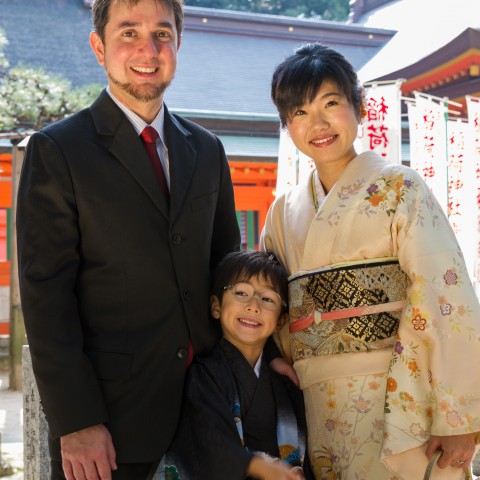










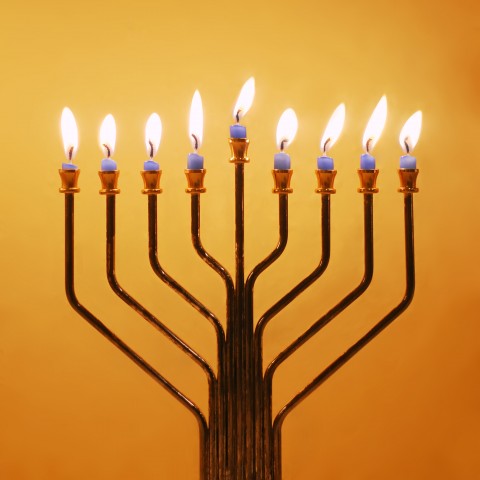
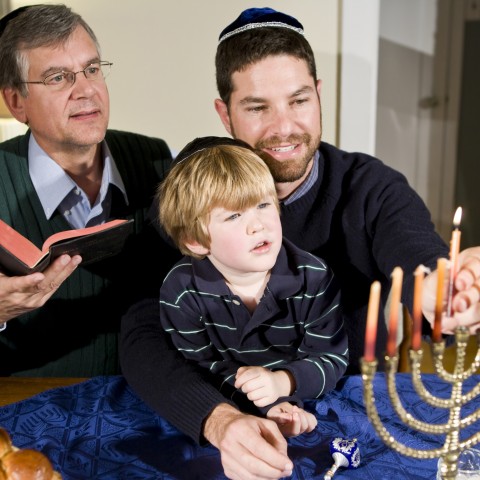













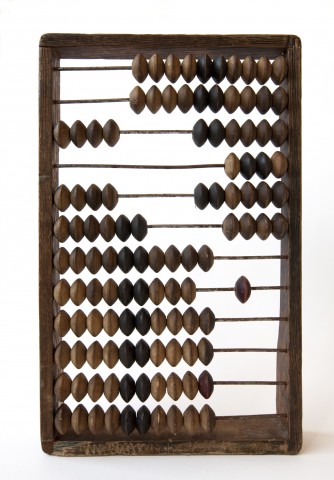










































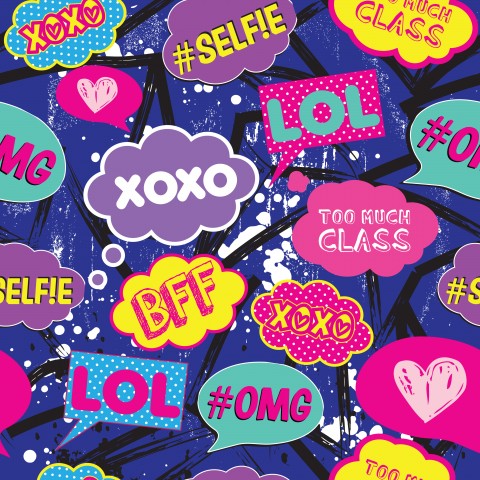
 Table of Contents
Table of Contents










